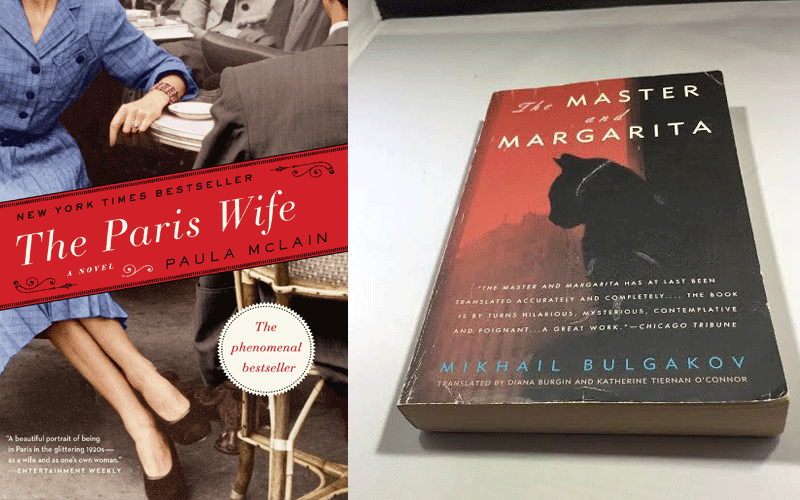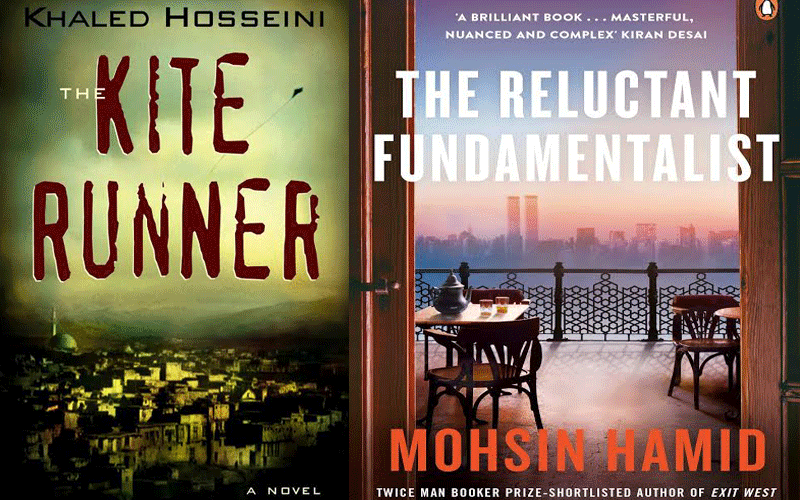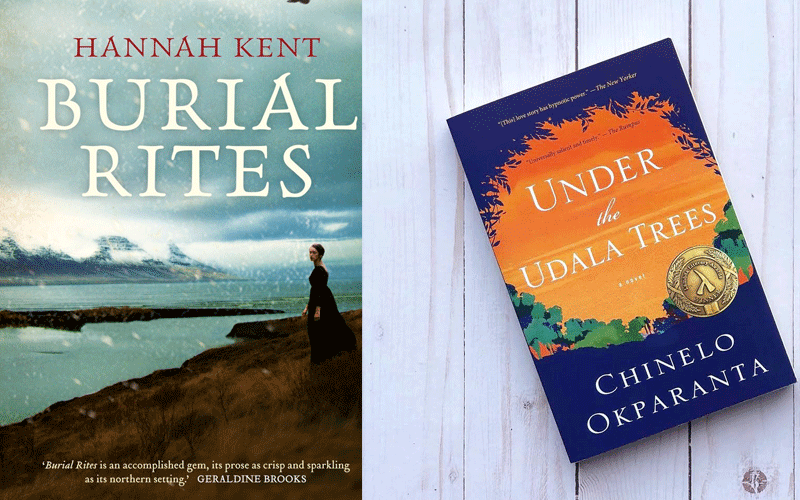New Year resolutions: Ten novels you should read in 2020

If reading is one of your New Year resolutions, then you must ensure the read is gripping. Here are a few books recommended from PETER NGILA’s library
The Havoc of Choice (Wanjiru Koinange-Kenya)
This debut novel is interesting because it’s set against a backdrop of the 2007/08 post-election violence, the historical tragedy that has since inspired a lot of literature.
In the novel, as the daughter of a politician, Kavata’s life tumbles down, so does her dear country.
Kavata’s husband Ngugi decides to run for a political office and Kavata plans to run away.
In a country dogged by corruption and political violence, Kavata and her family fight to restore lost or shaky ties.
The Paris Wife (Paula McLain-US)
The historical novel based on fact is narrated in the first person voice of Hadley Richardson, the first wife of famous American writer Ernest Hemingway.
After a whirlwind courting, 28-year-old Richardson marries 21-year-old Hemingway. The Hemingways run off from the US to start a new life in Paris, France. 
They form part of the famed gang of expatriate American writers referred to as The Lost Generation.
In the novel, through the careful research of McLain, we encounter the likes of Gertrude Stein, Sherwood Anderson, Scott Fitzgerald, Picasso, James Joyce and other writers and artists whose reckless lives would inspire an entire generation.
Kafka on the Shore (Haruki Murakami-Japan)
The 615-page book is the longest novel I have read so far. Fifteen-year-old Kafka Tamura and the more than 60-year-old Nakata would have made more sense if they were separated into two books.
But when I got to page 258, I realised the two stories are very close to each other! Kafka runs away from home following his father’s damning prophecy.
Nakata tracks lost cats, following a bizarre childhood event that left him dumb, and in his own words, “Mr Nakata is not very bright.”
The Kite Runner (Khaled Hosseini-Afghanistan)
I had skimmed this book for months because it’s one of those popular novels your friends will ridicule you for not reading.
But when I finally dug in, I loved the heartbreaking story narrated from the first voice of Amir.
I almost cringed when Hassan passed through that terrible thing I will allow you to discover in the book. Amid the fighting in Afghanistan, Amir gets to America. 
One of the things I loved about this novel is that every character in the novel is necessary. They tend to pop up from one part of the novel to the other.
Burial Rites (Hannah Kent-Australia)
The novel is based on Agnes Magnusdottir, the last person to be executed in Iceland after being convicted of killing two men in March 1828. With a troubled past, Agnes, upon her conviction, requests for Assistant Reverend Thorvardur Jonsson to guide her on her last moments on earth.
I was curious to know why, off all people, Agnes would specifically request for an Assistant priest.
Burial Rites, told majorly in the third person voice with Agnes’s personal account coming in now and then to tell a spell-binding tale, is a story of failed passion.
The Dragonfly Sea (Yvonne Adhiambo Owuor-Kenya)
Set on the island of Pate off the Kenyan coast, The Dragonfly Sea follows a stubborn Ayaana and her mother Munira.
A sailor called Muhidin storms their lives and Ayaana gets the privilege of having a father.
But as she matures into adulthood, forces of history start to reform her life and the island. She decides to embark on a ship’s voyage to the Far East, where the discovery of friends and enemies changes her life forever.
The Dragonfly Sea is a solid story of history and adventure, tight choices and the urge to belong in a perilous world.
The Master and Margarita (Mikhail Bulgakov Russia)
Translated by Diana Burgin and Katherine Tiernan O’Connor, The Master and Margarita was first published in 1966 (26 years after the writer’s death).
The multi-faceted novel is set in a 1930s Moscow when the devil appears in Moscow; and also in the 30s when Pontius Pilate was sentencing Jesus Christ.
The devil comes in the company of a naked witch, a black cat that has a special liking for vodka and a man with a cracked pince-nez.
The devil in the novel punishes the wicked, but renews the difficult lives of The Master, a depressed writer writing a novel about Pontius Pilate and his mistress Margarita.
The Shadow District (Arnaldur Indridason-Iceland)
I can happily die for Icelandic literature! The Shadow District is a moving historical fiction novel in a country whose crime rate isn’t the most admirable. 
But Arnaldur, the master of crime fiction, weaves an unforgettable story spanning from wartime Reykjavík and present day.
Retired detective Konrad, upon finding the body of a 90-year-old man, is forced to investigate a crime that happened in 1944 during the American occupation of Iceland.
He has to find a strange connection between the dead man and the murder of a young woman in Reykjavík more than 70 years back. It is translated from the Icelandic by Victoria Cribb.
The Reluctant Fundamentalist (Mohsin Hamid-Pakistan)
The little book is narrated in a Lahore café by Changez, a bearded Pakistani man. Changez narrates to an uneasy American stranger about his life in the US.
He tells of living the immigrant’s wishes in America. His Muslim looks don’t deter him from performing well at Princeton.
He soon falls in love with a troubled American girl called Erica, who is a writer fighting the demons of her own life.
Changez finds his life tumbling down, following the 9/11 terrorist attacks on America.
Under the Udala Trees (Chinelo Okparanta-Nigeria)
Under the Udala Trees is a classic already. It is the first and only book I have read so far, which majorly deals with lesbianism.
Through the first-person voice of a young Igbo girl Ijeoma, the novel takes us through generations in a Nigerian society where their own country people are persecuting the Lesbians, Gay, Bisexual, Transgender and Queer community.
During the Nigerian Civil War in 1968, Ijeoma falls in an addictive friendship with Amina, a Hausa girl.
In the book, the Igbo and the Hausa aren’t a friendly lot with each other due to the tribal nature of the war.



